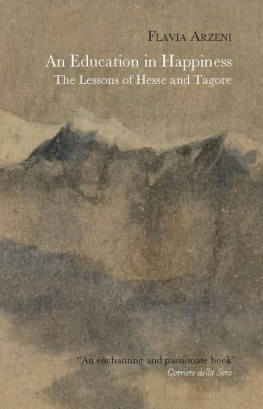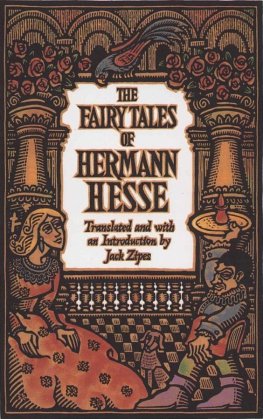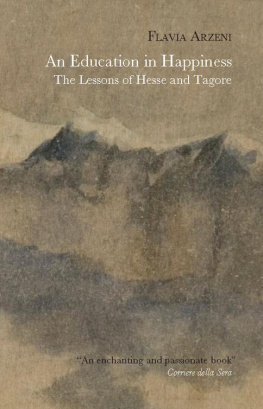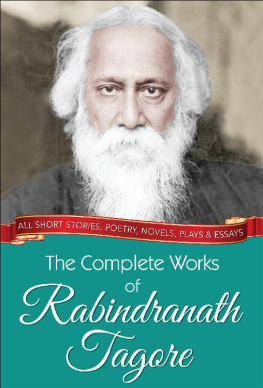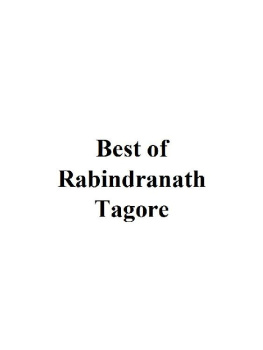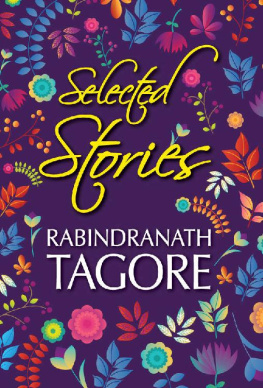A few years ago, I happened to be in Montagnola, a small village near Lugano in the Swiss canton of Ticino, sitting beside the entrance to the museum next door to the house where Hermann Hesse lived for many years, and watching the visitors as they went in to look at photographs, manuscripts and other mementoes of the writers long, troubled life. It was an average day, in an average year, but I was struck by the number of people there and by the looks of expectation on their faces. Many were young, but there was certainly no shortage of older people, including some who were quite elderly, and they seemed to be from every social classthe kind of people you could see any morning buying a paper from a news-stand or waiting at the bus stop.
What I knew about Hermann Hesse at that time was what someone of my age and profession could not help but know.
I had read most of his work, had attended a conference about him some time earlier, and had assigned graduation theses on him to some of my students. But that day, sitting by the entrance to that small museum, I saw with my own eyes, in the uninterrupted flood of visitors drawn there by nothing more than the desire to get closer to the memory of Hesse, the extraordinary fascination this idiosyncratic writer continues to exertalmost fifty years after his death and almost a hundred after writing his most famous novelson millions of people who read his books, share his ideas, and flock to the village of Montagnola in large numbers to feel close to him.
Hesse was well aware that his fame, as demonstrated by the thousands of letters he received in the last years of his life, derived not only from the undeniable literary quality of his work, but also from the fact that it deals with the great questions of human existencewhere are we, where are we going, what can we do to make a little easier the perennial search for a peaceful life and some form of happiness?
Some years later, in a small town in East Bengal, I observed that a similar kind of popular cult exists in India around the figure of the great Indian poet Rabindranath Tagore. The museum dedicated to his memory in Santiniketan, and his various houses thereas well as his familys home in Calcuttaare also the objects of a constant, silent pilgrimage which reminded me of what I had seen in Montagnola.
Seeing that brought back a memoryof the day I had first set foot in an old house by the sea where I was to live for a considerable length of time. Looking at the spines of the books in the library of the house, I noticed seven or eight volumes of Tagore, elegantly bound, in an Italian edition published around the time of the First World War. I pulled one out at random. It was a collection of poetry, and someone had annotated it in places. Some words, such as joy, harmony and consolation had been repeatedly underlined, and I took this as a good omen, as if I were being given clues to the secret of a happy life.
It struck me then that Tagores vast literary output, like Hesses, may contain some clues as to how to find a more balanced way of facing the storms of life and to approach that rare, fleeting state of mind to which we give the name happiness.
It was that reflection and that memory that gave me the idea of investigating the lives and works of these two writers, contemporaries of one another, who, starting from quite different places, worked towards the same goal. One moved from West to East, the other from East to West; one led a troubled, contradictory existence, the other was born into a world of comfort and privilege; one was shy and difficult, the other outgoing and eloquent. Yet both had a very similar insightto attain happiness, one needs only a few thingsa close bond with, and acceptance of, nature; a respect for small things and humble tasks; an idea of love that transcends the desire for possession; and finally, an awareness that, to get close to wisdom and truth, it is necessary to go beyond the boundaries of ones own native culture and religion and draw also on the teachings of other religions and other cultures.
Neither Hesse nor Tagore ever expressed these beliefs in a treatise or breviary on happiness. In addition, Hesse experienced, as did many of those close to him, some of the typical ills of our timeanxiety, a sense of solitude, depression, a death wish. Whatever lessons we may derive from him are contained not only in the many seeds strewn throughout his literary work, but also in the painful elements of his life. Whole generations have looked and continue to look to him, as they have to Tagore, as to a mysterious, sometimes enigmatic master with a simple, reassuring message. It is that message that this investigation aims to bring to light.
I have complemented my research by creating a garden on the border between Tuscany and Umbria inspired by those which Hermann Hesse cultivated during his lifetime and tended so passionately; it serves as a place for reflection on the ideas of happiness propounded by these two authors, as presented in this book.
E VERY ONE OF THE MORE than six billion men and women in the world today aspires to be happy. Even a baby, as soon as it comes into the world, before it has either reason or words, desires happiness and, if it can, indicates with a smile when it has achieved it. But if you could ask each of those six billion men and women what happiness is, almost nobody would give you the same answer. In fact, many of them would probably answer that it is impossible to say what happiness is. Does being happy derive from being virtuous, as some ancient Greeks asserted? Or does it lie in a balanced enjoyment of the benefits of the body and the mind, as Aristotle said? Or in detachment from the passions, as it was for the Stoics? Or in being wise? Or in getting closer to God, as any believertoday, as in the pastwould tell you? Or in satisfying material needs, as asserted in those doctrines that value the needs of society above those of the individual?
How difficult, if not impossible, it is to find a definition for happiness is demonstrated by the United States Constitution, which includes the pursuit of happiness as one of the inalienable rights of man, but does not define it in concrete terms, leaving this open to interpretation.
As with the idea of beauty, it is easier to speak of the idea of happiness through examples, especially from literature. There are many one could quote, but that would take another book. One of the most beautiful, most famous and most surprising is this passage from a story by Katherine Mansfield: What can you do if you are thirty and, turning the corner of your own street, you are overcome suddenly by a feeling of blissabsolute bliss!as though youd suddenly swallowed a bright piece of
Hesse, too, in a brief memoir, uses the image of being flooded with a fragment of sun. Having looked for happiness in reading and writing, and having given more pleasure to other people with his work than he had derived from it himself, he had to go back to his years of childhood to find an image of happiness: One morning I woke up, a lively child of about ten, with a totally strange but delightful feeling of joy and well-being, which like an inner sun went through me with its rays, as if at that moment, in that instant of awakening from a childs sound sleep, something new and wonderful had happened I knew nothing of yesterday or tomorrow, but was enveloped and softly lapped by a happy today.
Happiness is not a thing, not an objective fact, but an individual, elusive and almost always temporary state born out of the relationship we have with something. It does not necessarily find expression in loving, which can in fact be a cause of unhappiness, but in a certain relationship we have with the loved person. It does not come from the body, but from the relationship we have with our bodies. Its character, in other words, is intimately bound up with each persons subjective nature.

